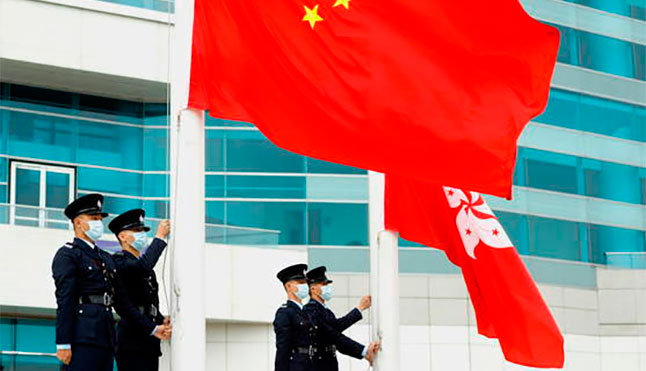
The pandemic brought the world economy to an unparalleled halt in 2020. As the first country to report the outbreak, China was also the first to feel its impact, experiencing a major economic recession as early as the first half of 2020.
Last year, China's announced mergers and acquisitions ended up being almost a third lower than in 2019. This rapid slowdown seemed even worse than the global trend of mergers and acquisitions (M&A) which fell only 10% in 2020, according to the Investment Trends Index of UNCTAD (United Nations Conference on Trade and Development).
Since the last quarter of 2020, China has taken an important turn in its acquisitions, in line with the strong recovery of the Chinese economy, thanks to effective measures to contain the virus, but also expansionary fiscal and monetary policies. This contrasts with the weak situation of the rest of the world.
Furthermore, the overall cost of financing for Chinese companies to go abroad has dropped considerably after the US Federal Reserve introduced massive monetary stimulus to boost the economy. The rapid recovery of the Chinese economy, coupled with much more lax global financial conditions and buying opportunities in countries affected by the Covid virus have led to a strong recovery in company acquisitions by China in the last quarter 2020. Another important element of China's M&A activity in 2020 is the return of operations destined for the United States. It should be noted, however, that both operations are purchases from European companies of their operations in the US The largest was, by far, Tencent's acquisition of 10% of Universal Music, majority owned by the French group Vivendi. . The second was the acquisition by Shanghai RAAS of 45% of Grifols Diagnostic Solutions, from the Spanish pharmaceutical company Grifols, in exchange for 26.2% of the shares of the Chinese company. Peru was the second target for China last year, reflected in the acquisition of Luz del Sur (LDS), one of the country's largest power companies, by Yangtze Power.
Beyond acquisitions from European companies in the US market, the European Union is now the preferred region for Chinese acquisitions. Especially if we take into account that the agreements with Universal Music and Grifols were related to European companies. In fact, the EU was the region with the most deals with China in 2020, including the Huazhu Group's acquisition of Deutsche Hospitality and the Guangdong Wencan Die Casting Corporation's operation with French auto parts maker Le Belier.
Regarding the sectoral distribution of Chinese acquisitions, the industry remains the key to Chinese M&A abroad, with a particular focus on the EU. The second most important sector is health. However, due to several large energy and entertainment operations, the sectoral distribution in terms of value was more uniform in 2020 than in previous years.
In terms of ownership, acquisitions by Chinese SOEs gained traction in 2020 with a special focus on Asia-Pacific and other regions, while those by the US and Europe declined. In particular, the percentage of Chinese SOEs operations in Europe decreased. Most of these acquisitions are framed in sectors related to natural resources, while private companies predominate in the industrial and consumer sectors.
With all this, 2020 has not been a good year for the acquisitions of Chinese companies abroad, but there was a certain tendency to recovery at the end of the year. The reason could be the relatively better performance of the Chinese economy in the second half of 2020 and also the existence of more favorable global financial conditions. Finally, China's intentions to explore global market opportunities, as well as the drive for technological and industrial improvement, are also key parts of China's participation in the global M&A market.
The European Union is one of its main objectives, which should also explain the great interest of the Asian giant to sign the Comprehensive Investment Agreement (CAI) with the EU as 2020 came to an end. It is clear that keeping the EU market open for future acquisitions is really important for China. For all this, do not be surprised to continue seeing sales of European companies to China, to the extent that our governments allow it, of course.
Published in Digital Newspaper El Confidencial
Written by Alicia García Herrero
April 21, 2021
